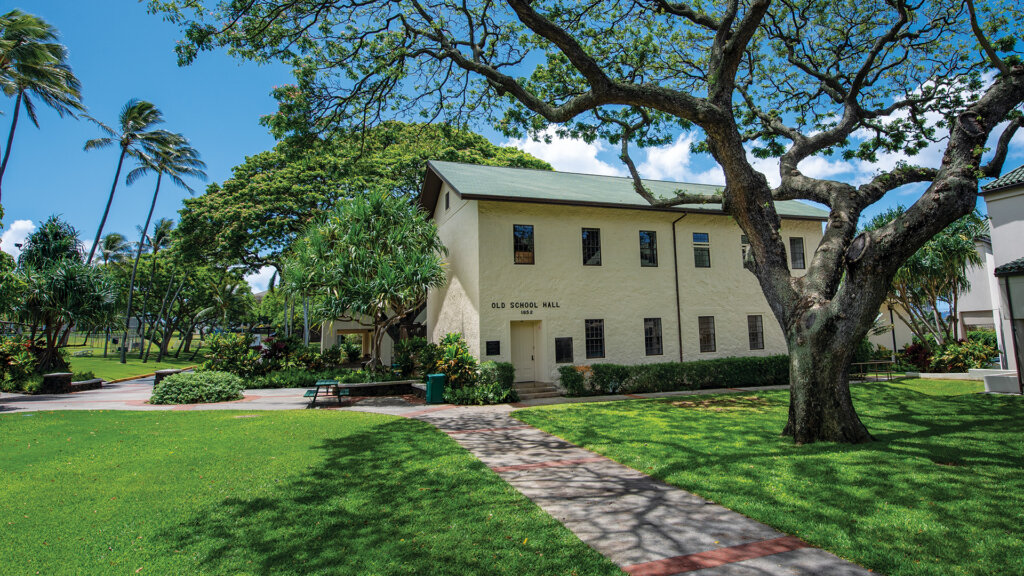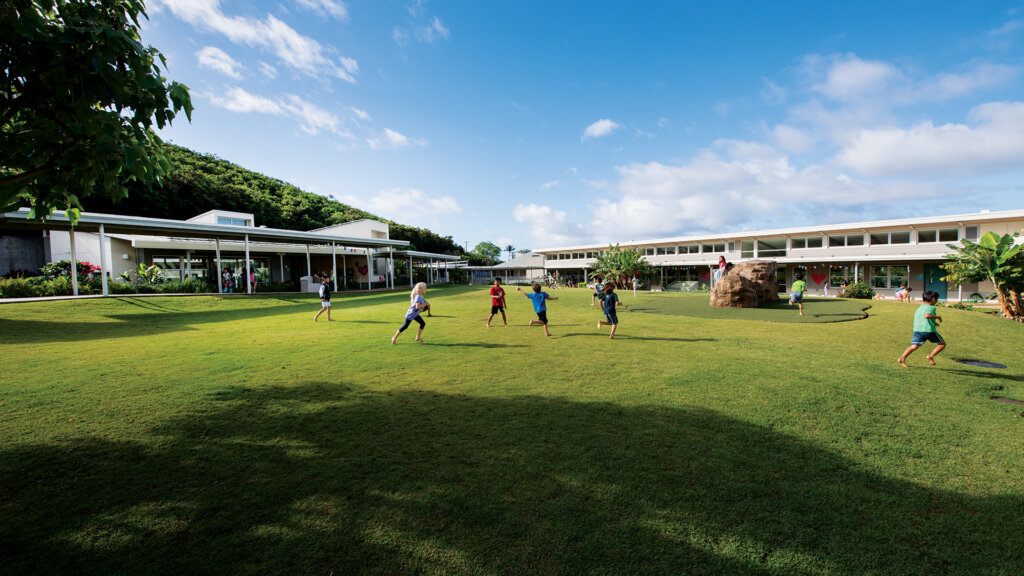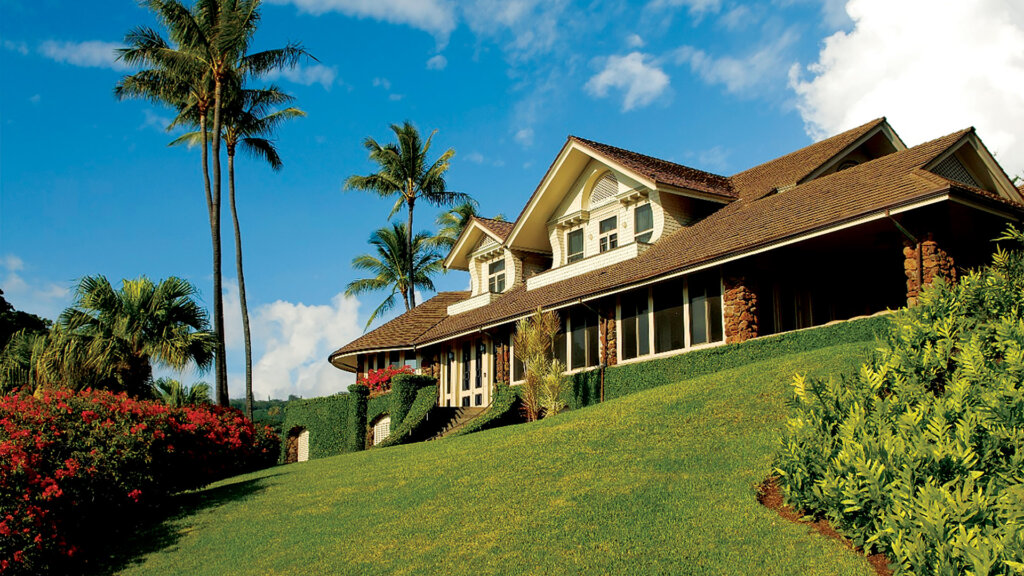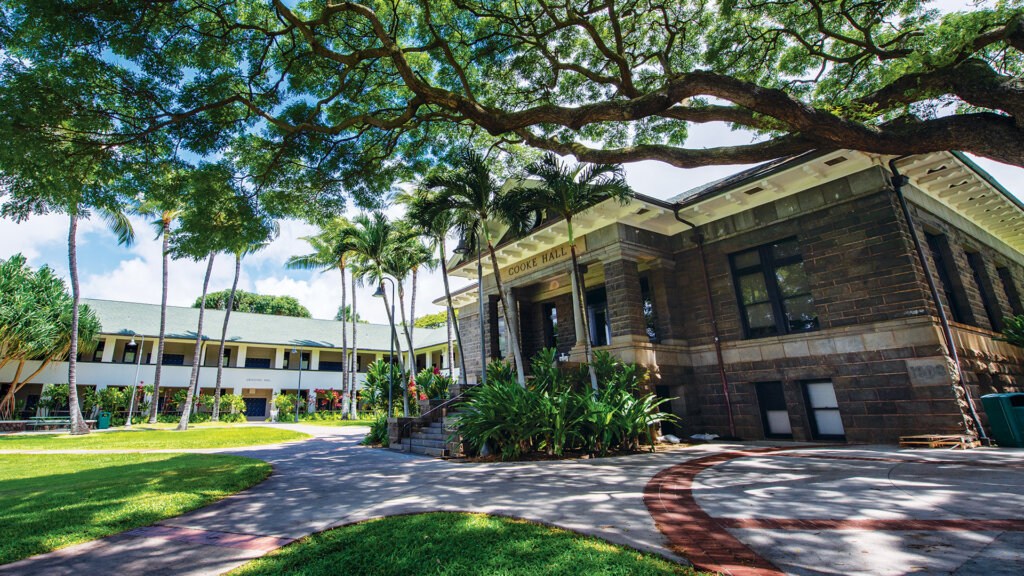At Punahou, learning spaces do more than support academic excellence – they help cultivate a deep sense of connection and belonging. Across our campus, iconic buildings spark vivid memories and emotional ties, anchoring generations of students and alumni to a shared experience of place. Step into Dillingham Hall, and you might recall the powerful Damon Speeches of middle school. Montague Hall stirs memories of uplifting musical performances. And the Chapel – where the gentle voices of K – 1 choirs herald the holiday season – remains a beloved symbol of tradition and joy.
These spaces are more than just buildings; they are keepers of memory, meaning and community. Behind them are the visionaries who shaped our 76-acre oasis – architects whose creativity and foresight helped define Punahou’s physical and cultural landscape. This story highlights a few of them, including Bertram Goodhue, Charles William Dickey, Vladimir Ossipoff, Ernest Hideo Hara (1928), and Philip “Pip” White ’66.
They were celebrated in their time and remain admired for contributions that extend far beyond our campus. Their work has enriched Hawai‘i’s architectural legacy and continues to shape spaces that educate, inspire and connect – today and for generations to come.

Architect: Ripley & Reynolds

Architect: William H. Rice

Architect: Urban Works, Inc.

(1907, 1908 and Pavilion 1986)
Architects: O.G. Traphagen; David Stringer

Architect: Harry Livingston Kerr

Architect: Law & Wilson
Main Article: Blueprints for Learning: The Architects Who Shaped Punahou’s Campus
